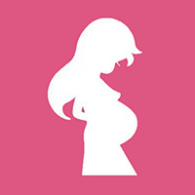ivfet全称
ivf英文全称
IVF(试管婴儿)是一种辅助生殖技术,在不自然的环境中将**和精子结合,使受精卵存活并移植回宫内。IVF从诞生至今已有50多年历史。这项技术为许多不孕症夫妇、输精管堵塞、遗传疾病等性问题患者提供了助孕的另一条途径。
在IVF治疗过程中,通常需要口服或注射药物以促进多卵泡的正常发育,并进行抽取。然后,将採集**内细胞或精子等制成人工受精卵,并定期检查**的成熟程度。经过一系列复杂的步骤,许多成功的场例显示出IVF技术的重大意义和生命的意义。
What is IVF?
IVF, or in vitro fertilization, is a fertility treatment that involves combining eggs and sperm outside the body in a laboratory dish. The resulting embryos are then transferred to the uterus for implantation. IVF is a commonly used treatment for infertility and can be helpful for couples struggling with various fertility issues.
IVF may be recommended for couples who have been trying to conceive for a prolonged period of time without success, or for those who have specific fertility issues such as blocked fallopian tubes or low sperm count. It can also be used for individuals or couples who wish to use donor eggs, sperm, or embryos.
How does IVF work?
The IVF process typically involves several steps, including ovarian stimulation, egg retrieval, fertilization, embryo culture, and embryo transfer. Ovarian stimulation is achieved through the use of medication to help produce multiple eggs. These eggs are then retrieved from the ovaries using a needle guided by ultrasound.
The retrieved eggs are then fertilized in a laboratory dish with sperm, either from the partner or from a donor. After fertilization, the resulting embryos are monitored and cultured for several days before being transferred to the uterus for implantation. Embryo transfer is typically done using a thin catheter inserted through the cervix.
What are the risks and benefits of IVF?
Like any medical procedure, IVF comes with both risks and benefits. On the one hand, IVF can be highly effective in helping couples achieve pregnancy when other methods have failed. It can also allow for the use of donor eggs, sperm, or embryos for those who need them.
On the other hand, IVF can be expensive and time-consuming, and it may not always result in a successful pregnancy. There may also be risks associated with the use of fertility medications, such as ovarian hyperstimulation syndrome (OHSS) and multiple pregnancies. In addition, there is some evidence to suggest that children born through IVF may be at slightly higher risk for certain health issues.
What are the alternatives to IVF?
For couples who are struggling with infertility, there are several alternative treatments that may be considered before or instead of IVF. These include intrauterine insemination (IUI), which involves placing sperm directly into the uterus, and fertility medications such as clomiphene citrate and letrozole.
In addition, there are various lifestyle changes that can be made to improve fertility, such as maintaining a healthy weight, reducing stress, and avoiding smoking and excessive alcohol consumption. Some couples may also choose to explore options such as adoption or surrogacy.
What should I expect during an IVF cycle?
IVF can be a complex and emotionally challenging process, and it's important to know what to expect before beginning treatment. The first step is typically a consultation with a fertility specialist to discuss your medical history, perform any necessary tests, and develop a treatment plan.

Once treatment begins, you will need to take medication to stimulate your ovaries and produce multiple eggs. This medication may be administered through injections or nasal sprays. You will also have regular monitoring appointments to track your progress and adjust your medication dosage if necessary.
After the eggs are retrieved, you will receive anesthesia to keep you comfortable during the procedure. Following egg retrieval, you may experience some mild cramping or discomfort for a few days. The fertilization process will then take place in a laboratory dish, and the resulting embryos will be monitored and cultured for several days before being transferred to the uterus. You will then need to wait several days or weeks to find out if the embryo has implanted and pregnancy has occurred.
试管婴儿技术全称为体外受精-胚胎移植(IVF-ET),其来源于先进的生殖医学技术,已成为高龄、不孕不育等不同病症患者圆梦生育的救命稻草。
试管婴儿技术在IVF-ET中的优势在于:不限制月经周期、高度精准的组织操作、种种重度不孕不育患者均适用。相对于传统的辅助生殖技术,试管婴儿技术成功几率较高,且安全性得到了大幅提升。
试管婴儿技术的不断攀升和创新推动医学领域的进步,给无数渴望成为父母的家庭带来了曙光。相信随着技术的不断完善,试管婴儿技术未来将会带来更多惊喜。




